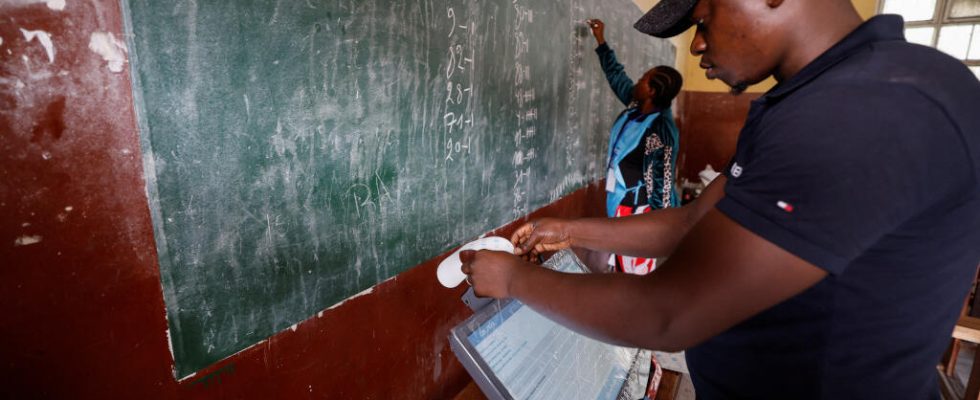In the Democratic Republic of Congo, seven months after the general elections of December 20, 2023, including the presidential election won by President Félix Tshisekedi and his coalition, the Carter Center presented, Wednesday, July 24 in Kinshasa, the general report of its electoral mission.
2 min
with our correspondent in Kinshasa, Pascal Mulegwa
The report criticizes the before, during andpost-polls. The CENI was also called upon to provide necessary documents to the High Court and to protesters of the resultsThe report also proposes reforms to the electoral law in DRC.
Also read: our special edition of January 1, 2024Elections in the DRC: analyses and reactions to the victory of Félix Tshisekedi
For the Carter Center, this dialogue must be inclusive and should take into account the points of view of political parties, civil society and observation missions.
The observer team notes that the registration of eligible citizens such as indigenous peoples, displaced persons and persons living with disabilities was insufficient. Also insufficient were the electoral kits on voting day. The report also notes massive breakdowns and late interventions.
Read alsoElections in the DRC: voting continues in the disrupted offices, in the others the counting has begun
The response of the second vice-president of the CENI, Didi Manarawas not long in coming. This statement is too light and serious because the CENI has not seen any numerical or empirical basis in the report to support this allegation. The CENI wonders why the carter center is surprised at this level because the participation rate of 2023 is not too far from that of 2018 “.
He nevertheless acknowledged the need for innovation. If the country gets started on time with reforms aimed at improving the process and not acquiring or retaining power, the DRC will have better elections in 2028. ??? “.
“ One of the key elements concerns the question of transparency at certain stages of the process, notes Nicolas Teindas, head of the Carter Center’s observation mission. It is true that the CENI has made efforts but there remains the question of transmission of results and regular communication with the stakeholders in the electoral process. »
According to the rapporteurs, it is difficult to determine whether the Constitutional Court was impartial during the disputes, especially since its decisions were not ” not sufficiently motivated “.
Read alsoDRC: Joint report from Cenco and ECC criticizes electoral process
